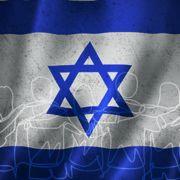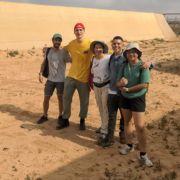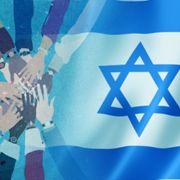International Students Learn about First Aid
TAU’s Faculty of Medicine holds a hands-on training session
How many people call 911 when they see somebody going into cardiac arrest? Should you hang up on a 911 dispatcher? What’s a helpful mnemonic for the number to call in Israel for a medical emergency (it’s 101, by the way)?
These and many other questions were addressed during the three-hour first-aid training session held at TAU, led by instructors from MADA (Magen David Adom, Israeli emergency medicine provider), with the workshop's relevance heightened by the ongoing war.
The session was organized by the Department of Emergency and Disaster Management at the School of Public Health (Faculty of Medicine) at the initiative of Rona Tobolsky, a graduate student in TAU’s International Disaster Management program. Since the session was held in English, many international students from various master's programs signed up to take part.
The instructors, some of whom are also TAU medical students, spoke about what CPR stands for, which is, surprisingly, not ‘cardio-vascular resuscitation’, but rather ‘call for help’, ‘push hard’, and ‘reach for the defibrillator’. They then went on to detail each stage, sharing important tips and first-hand experiences, as well as demonstrating each action.
Students tested their knowledge (and strength!) when they tried to resuscitate a CPR dummy by administering proper pushes. Handy tip – try doing it to the tune of the Baby Shark song to keep the rhythm (Staying Alive by Bee Gees being the other popular option).
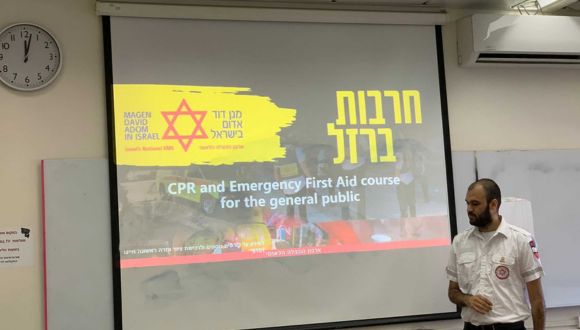
The session also covered dealing with other emergencies, such as bleedings, strokes, fainting, allergic reactions of different levels, and burns. Some of the workshop participants have had prior experience and training in first aid, but they still found the session quite productive. And for others it was packed with new information and skills.
Allison Kvasnak (US), student in Master of Disaster Management program:
"Being a trauma nurse, you see the tragedy of life, you see everybody on the worst day of their life, so with nursing becoming so popular I wanted to take my trauma training and expand it on a global scale. As I told my manager, I’m off to save the world – this is something I used to do at the hospital as a code nurse. That’s why I came to study in Israel in the MDM program.
I may already have the training, but it’s always good to get information reinforced every six months or so.
Israel is a different country from the US and I wanted to see what their standard of first aid was and compare it.
The approach here is a little different from what we do in the US, but the general standard is very similar. It’s nice to see that we are working together on the same thing."
Stefanie M. Schulz (Germany), graduate of master’s program in Security and Diplomacy:
"The training session was very well organized. There were a lot of students from the Disaster Management program, but not only. I met a lot of students from around the world who have just started their degree programs at TAU.
The instructor was really professional and spoke great English. What was really amazing is that all instructors are actual EMTs and could tell us about their experience. It’s much more intense and educational that way. I came down all the way from Jerusalem for the session and it was absolutely worth it.
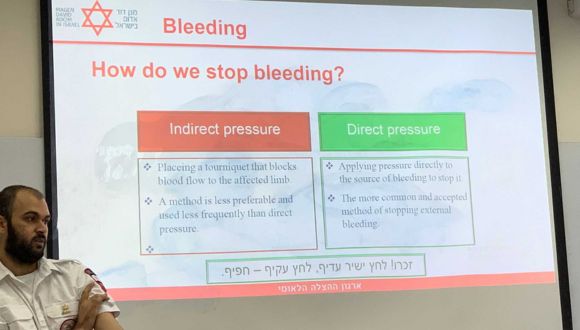
The most relevant and important part for me was related to handling bleeding because it’s directly related to the current war in Israel. My biggest worry had been that if something happens I won’t be able to respond, so it was very important to be trained on what to do with an open wound and how to stop a bleeding in different ways, how to apply a tourniquet, for instance. I never had any training in that, so it was very important for me to learn and see how it is done. Practicing CPR to feel how much pressure to apply was also very useful.
The most surprising fact for me was that so many people die unnecessarily because CPR is not done immediately or no one calls an ambulance. Our instructor told us that in an emergency situation it’s important to take the lead and get people to do what needs to be done.
It was a really informative three hours, and the personal anecdotes made it really interesting for me.
Hearing from experts in the class sharing their perspective was also great. I’m really grateful for this training."
Erica Katzin (US/Israel), student in Sustainable Development master's program:
"I work as a substitute teacher in a pre-school and in the past I found it useful to be certified for the children I’m taking care of and also to know how to handle a situation when someone needs first aid in the street.
I have done courses like this in the past, but they did surprise me by saying that with an EPI pen one should call an ambulance and get instructions to deliver it instead of the other way around.
I found the instructors very thorough in teaching us first aid and basic life-saving skills.
They went over everything I wanted a refresher on, which was one of the reasons I decided to take the course. I had a family member who had a heart attack in a public place and had people not known basic CPR, he wouldn’t be with us today."


